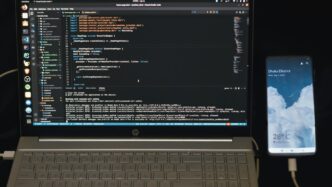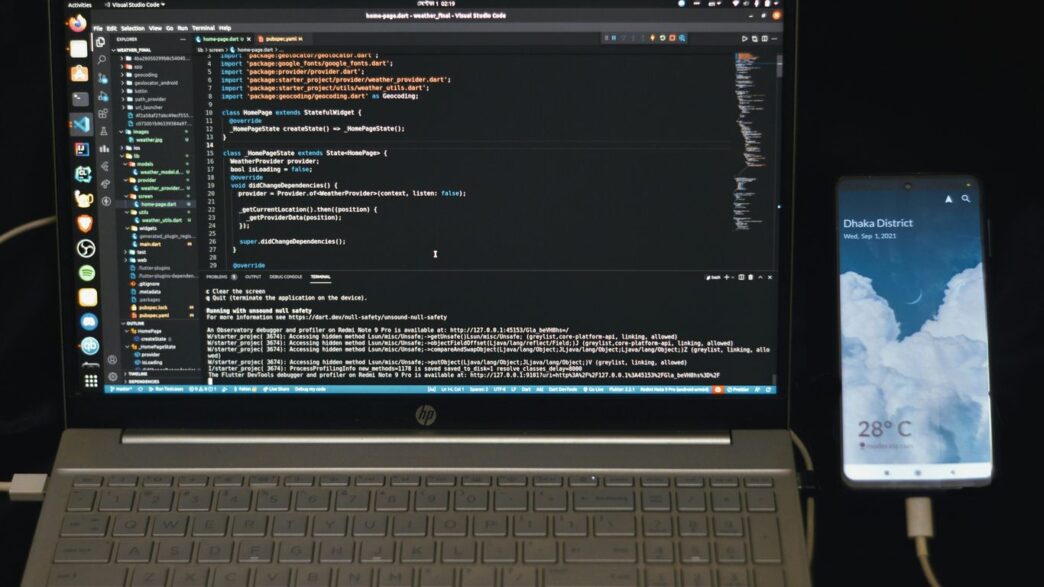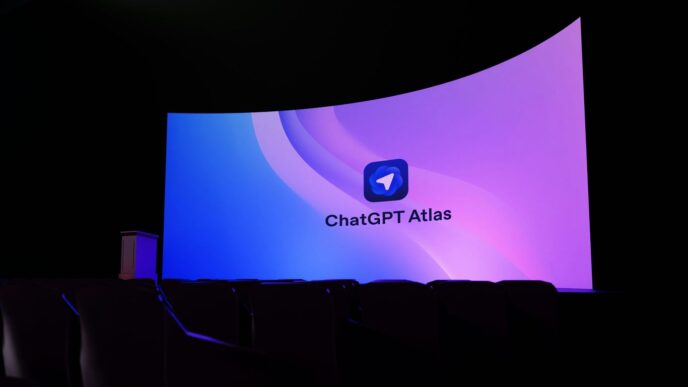So, you’re thinking about learning Python, and you’ve seen freeCodeCamp mentioned a lot, especially on Reddit. It’s a pretty popular topic over there. But is it actually a good way to learn Python? Does spending time on freeCodeCamp, and then checking out what people say about it on Reddit, make sense for you? Let’s break it down.
Key Takeaways
- Reddit users often point to freeCodeCamp’s project-based learning as a major plus for gaining practical Python skills.
- The freeCodeCamp Python curriculum is praised on Reddit for its structure and accessibility, making it a good starting point for beginners.
- Many success stories shared on Reddit highlight how freeCodeCamp helped people transition into tech careers.
- The r/Python subreddit is a go-to place for supplementary resources, asking questions, and seeing how others use Python in real projects.
- Comparing freeCodeCamp Python with other platforms like Codecademy or Corey Schafer’s tutorials on Reddit reveals different strengths, from interactive lessons to video guides.
Understanding the freeCodeCamp Python Offering on Reddit
So, you’re thinking about learning Python, and you’ve seen freeCodeCamp pop up a lot, especially on Reddit. It’s a pretty big deal in the online learning space, and for good reason. They’ve built a whole system around teaching people to code, and a lot of that buzz happens on Reddit. It’s not just about the courses themselves, but how people talk about them, share their wins, and help each other out.
The "Learn by Building" Philosophy
freeCodeCamp really leans into this idea of learning by doing. Instead of just reading about Python or watching videos, you’re expected to actually build things. This means tackling projects that get progressively harder. You start with the basics, sure, but pretty quickly you’re putting those concepts into practice. This hands-on approach is a big part of why people find it effective. It’s like learning to ride a bike; you can read about it all day, but you won’t get anywhere until you get on and pedal.
Community Endorsements and Success Stories
If you spend any time on subreddits like r/Python or r/learnpython, you’ll see people mentioning freeCodeCamp constantly. Many users share stories about how they went from knowing nothing to landing a job in tech after completing the curriculum. These aren’t just random comments; they’re often detailed accounts of the learning process, the challenges faced, and how freeCodeCamp’s structure helped them overcome those hurdles. It’s this kind of peer validation that makes you think, "Okay, maybe this is something I can do too."
Accessibility and Cost-Free Education
One of the most attractive aspects of freeCodeCamp is that it’s completely free. No hidden fees, no subscriptions, just pure learning material. This makes it a fantastic option for anyone, regardless of their financial situation. You can access their Python courses, projects, and even get certifications without spending a dime. This commitment to free education is a major reason for its popularity, especially when compared to other platforms that can get quite expensive.
Key Features of freeCodeCamp’s Python Curriculum
freeCodeCamp really stands out because it doesn’t just throw a bunch of information at you and hope for the best. They’ve put together a learning path that feels like it’s actually designed to get you coding, not just reading about it. It’s a solid way to start your journey into programming.
Comprehensive and Structured Learning Path
What you get with freeCodeCamp is a clear roadmap. You start with the absolute basics, like what a variable is and how to write a simple print() statement. Then, it gradually moves you through more complex ideas. Think loops, functions, object-oriented programming, and eventually into areas like data analysis or web development with Python. It’s not just a random collection of lessons; there’s a definite progression. They break down big topics into smaller, manageable chunks, which makes it less intimidating. You can see where you’re going from the start.
Project-Based Learning for Practical Skills
This is where freeCodeCamp really shines. Instead of just doing endless practice problems in isolation, you’re constantly building things. You’ll work on small projects early on, and as you progress, these projects get bigger and more involved. For example, you might build a simple calculator, then a basic web scraper, and later on, maybe a small data visualization tool. This hands-on approach helps you actually use the Python concepts you’re learning in a practical way. It’s one thing to know how a for loop works, but it’s another to use it to process a list of data for a project. This is how you build real skills that employers look for. You can even find discussions about these projects on places like r/Python.
Valuable Certification Programs
While the learning itself is free, freeCodeCamp also offers certifications upon completion of their various courses and projects. These aren’t just participation trophies; they represent a significant amount of work and skill development. Completing a certification means you’ve gone through the curriculum, built the required projects, and demonstrated your understanding. Many people on Reddit talk about how these certifications, combined with the portfolio projects they built, helped them land their first coding jobs. It’s a tangible way to show potential employers what you can do.
Leveraging Reddit for freeCodeCamp Python Insights

Reddit is a goldmine for anyone learning Python with freeCodeCamp. It’s not just about the official curriculum; the real magic happens when you tap into the massive community. Think of it as a massive, always-on study group.
Community Support and Q&A on r/Python
The r/Python subreddit is where a lot of the chatter happens. You can ask pretty much anything, from why your code isn’t working to what the best way to approach a specific freeCodeCamp project is. People are generally pretty helpful, and you’ll often find answers to questions you didn’t even know you had yet. It’s a place where you can:
- Get unstuck on tricky coding problems.
- Find explanations for concepts that might not click immediately from the freeCodeCamp lessons.
- See how other learners are tackling the same challenges.
Don’t be afraid to post your own questions; the worst that can happen is you don’t get an answer, but usually, someone jumps in.
Discovering Supplementary Resources
Beyond just asking questions, Reddit is fantastic for finding extra learning materials. Users frequently share links to:
- Blog posts: Many developers write detailed posts about their experiences with freeCodeCamp projects or specific Python topics.
- YouTube tutorials: While freeCodeCamp has its own resources, sometimes a different explanation clicks better. Redditors often point to great video guides that complement the curriculum.
- Articles and documentation: You might find links to official Python documentation or articles that explain concepts in a different way, which can really help solidify your knowledge.
It’s like having a curated list of the best Python learning tools, all gathered in one place.
Real-World Application Discussions
What’s really cool is seeing how people are using their Python skills, often learned through freeCodeCamp, in the wild. Discussions on Reddit often touch on:
- Project ideas: People share what they’re building, which can inspire your own projects.
- Career advice: You’ll find threads where people discuss how freeCodeCamp helped them land jobs or switch careers.
- Tool recommendations: Beyond just Python, you might learn about useful libraries or development tools that complement your learning.
Seeing these real-world examples makes the learning process feel more tangible and motivating. It shows you what’s possible once you get through the curriculum.
Comparing freeCodeCamp Python with Other Platforms
So, you’re thinking about learning Python, and you’ve heard about freeCodeCamp. That’s great! But how does it stack up against other popular ways people learn to code? Let’s break it down.
freeCodeCamp vs. Codecademy: Interactive vs. Project-Driven
Codecademy is known for its super interactive approach. You type code right into your browser, and it tells you if you messed up immediately. It’s like having a tutor looking over your shoulder, constantly giving you feedback. This can be really good for getting the hang of basic syntax and making sure you don’t build bad habits early on. They have a lot of different languages, too.
freeCodeCamp, on the other hand, leans heavily into building actual projects. You learn by doing, and you’re expected to put pieces together yourself. It’s less about instant feedback on every single line and more about figuring out how to make something work from start to finish. This is awesome for building a portfolio, which is what employers often want to see.
Here’s a quick look:
| Feature | Codecademy | freeCodeCamp |
|---|---|---|
| Learning Style | Highly interactive, immediate feedback | Project-based, learn by building |
| Pace | Self-paced, but lessons are bite-sized | Self-paced, project milestones |
| Portfolio Focus | Good for learning, less emphasis on projects | Strong emphasis on portfolio-building projects |
| Cost | Freemium (basic courses free, more paid) | Completely Free |
freeCodeCamp vs. Corey Schafer: Curriculum vs. Video Tutorials
Corey Schafer is a name that pops up a lot on Reddit when people ask for Python help, especially if they like learning through videos. His YouTube channel is packed with really clear, in-depth tutorials covering everything from the absolute basics to more advanced stuff like web development with Python. The videos are well-organized, making it easy to find what you need.
freeCodeCamp’s curriculum is more of a structured path. You follow along with their courses, complete challenges, and build projects. It’s a complete package designed to take you from zero to job-ready, with certifications to show for it. While freeCodeCamp also has a YouTube channel and articles, their core strength is that structured, project-focused learning path.
Think of it this way:
- Corey Schafer: Great for visual learners who want detailed explanations on specific topics or a guided video walkthrough.
- freeCodeCamp: Better if you prefer a structured curriculum, want to build a portfolio through projects, and aim for a certification.
Many people find using both is the best approach – watching Corey’s videos for clarification and then applying that knowledge in freeCodeCamp’s projects.
freeCodeCamp vs. Python Institute: Certification Focus
The Python Institute is all about formal certification. They offer preparation for exams like the PCAP (Certified Associate in Python Programming). If your main goal is to get a recognized credential that you can put on your resume to prove your Python skills, this is a solid option. Their materials are structured with certification in mind.
freeCodeCamp also offers certifications, but they’re earned by completing a series of projects. These certifications are more about demonstrating practical ability through completed work rather than passing a formal exam. While valuable, they might not carry the same weight as a specific industry certification like the PCAP for certain roles.
So, if you’re aiming for a job that specifically asks for a Python certification, the Python Institute might be your primary focus. If you want to learn Python by building things and have a portfolio to show for it, with certifications as a bonus, freeCodeCamp is a strong contender. Many learners use freeCodeCamp to gain the practical skills and then perhaps pursue a formal certification later if needed.
Maximizing Your freeCodeCamp Python Journey

So, you’ve decided to tackle Python with freeCodeCamp, and maybe you’re checking out Reddit for extra tips. That’s smart! Learning to code isn’t just about watching videos or reading docs; it’s about doing and connecting. Here’s how to really get the most out of the freeCodeCamp Python path, using Reddit as your sidekick.
Building a Portfolio with freeCodeCamp Projects
Look, just finishing the freeCodeCamp courses is a good start, but it’s not the whole story. Employers want to see what you can do. The projects in the freeCodeCamp curriculum are your building blocks for a portfolio. Don’t just complete them; make them your own. Think about how you can extend them, add new features, or even combine concepts from different projects.
- Document Everything: Use GitHub. Seriously, if you’re not using Git and GitHub, start now. Push your code regularly. Write clear README files for each project explaining what it does, how to run it, and the technologies you used. This shows you know how to present your work professionally.
- Showcase Your Best Work: Pick 2-3 of your strongest projects from freeCodeCamp to highlight. Maybe one focuses on data analysis, another on web scraping, and a third on a simple web app. Quality over quantity is key here.
- Personalize It: Did you build a project that solves a problem you actually have? Mention that! Personal stories about why you built something make your portfolio more engaging than just a list of tasks completed.
Engaging with the freeCodeCamp Community
freeCodeCamp isn’t just the website; it’s a massive community. While Reddit is great for general Python chat, don’t forget the official freeCodeCamp spaces. They have forums and a Discord server where you can connect with people who are literally on the same learning path as you.
- Ask Specific Questions: When you’re stuck, don’t just say "I don’t get it." Explain what you’ve tried, what you expect to happen, and what’s actually happening. Share relevant code snippets (use pastebin or GitHub gists if it’s long).
- Help Others: When you figure something out, pay it forward. Explaining a concept to someone else is one of the best ways to solidify your own understanding. You’ll be surprised how much you learn by teaching.
- Share Your Progress: Post about milestones you hit. Completed a tough project? Share it! It’s motivating for you and can inspire others.
Utilizing Reddit for Continuous Learning
Reddit is a goldmine if you know where to look. Beyond just asking questions, use it to discover new things and stay current.
- Follow Relevant Subreddits: Besides r/Python and r/learnpython, check out subreddits related to specific Python libraries you’re using (like r/pandas or r/django) or areas you’re interested in (like r/datascience).
- Look for Project Ideas: People often post about cool projects they’re working on or challenges they’re facing. This can spark ideas for your own portfolio or practice projects.
- Find Supplementary Resources: You’ll often see links to helpful articles, tutorials, or even free Udemy coupons shared by the community. Keep an eye out for these – they can fill gaps in your knowledge or introduce you to new tools.
By actively building, sharing, and engaging, you transform the freeCodeCamp Python curriculum from a passive learning experience into a dynamic journey toward becoming a confident developer.
The Value Proposition of freeCodeCamp Python on Reddit
So, why all the buzz about freeCodeCamp’s Python stuff, especially when you see people talking about it on Reddit? It really boils down to a few key things that make it stand out. For starters, it’s completely free. Like, zero dollars. You get access to a ton of learning material, structured courses, and you can even get certifications without paying a dime. This is a huge deal for anyone looking to get into coding without a big financial commitment. Many folks on Reddit share how they’ve switched careers or landed their first tech jobs after going through the freeCodeCamp curriculum. It’s not just about learning; it’s about tangible results.
Career Transition Success Stories
It’s pretty common to see posts on Reddit where people share their journeys from completely different fields into tech, crediting freeCodeCamp. They talk about going from jobs in retail or customer service to becoming junior developers. These stories often highlight the practical, project-based nature of the curriculum. Building actual projects is what seems to make the difference. It gives you something concrete to show potential employers, and that’s what really matters when you’re trying to break into a new industry. You can find roadmaps for data science that emphasize Python, showing just how versatile the language is.
Free Access to High-Quality Education
Let’s be real, good education can be expensive. freeCodeCamp flips that script. They offer a structured learning path that covers a lot of ground, from the basics all the way up to more complex topics. You can learn Python, JavaScript, and more, all at your own pace. The fact that it’s all available online, for free, means anyone with an internet connection can start learning. This accessibility is a massive plus, and it’s why so many people turn to it. It’s a solid way to get started with programming.
Community Validation and Peer Recommendations
Reddit acts as a giant echo chamber for what works. When you see countless users recommending freeCodeCamp, sharing their successes, and helping each other out on subreddits like r/Python, it carries weight. It’s not just the platform saying it’s good; it’s the community. People share tips, troubleshoot problems together, and celebrate milestones. This peer validation is powerful. You can find discussions about how to apply your new skills, like using Python for data analysis, which is a popular field.
Here’s a quick look at what people often mention:
- Project-Based Learning: Building real things is key.
- Free Certifications: Proof of your skills for your resume.
- Active Community: Help is always available.
- Career Focus: Designed to help you get a job.
So, Is FreeCodeCamp’s Python Path Worth It?
After looking at what people are saying on Reddit, it seems like freeCodeCamp’s Python resources are a solid choice for many. The platform offers a lot of free content, and the focus on building projects helps you actually use what you learn. Many users mention that it helped them get jobs or switch careers, which is pretty impressive. Plus, the community aspect means you’re not totally alone if you get stuck. If you’re looking for a structured way to learn Python without spending a lot of money, freeCodeCamp definitely seems like it’s worth checking out. It’s a good way to get your feet wet and build up some practical skills.
Frequently Asked Questions
What is freeCodeCamp’s main way of teaching Python?
freeCodeCamp teaches Python by having you build projects. This means you learn by doing, which helps you get practical skills.
Is freeCodeCamp’s Python course really free?
Yes, freeCodeCamp’s entire learning program, including its Python courses, is completely free. They are a non-profit organization focused on making coding education available to everyone.
Can Reddit help me learn Python with freeCodeCamp?
Absolutely! Reddit has communities like r/Python where you can ask questions, get help from others, and find extra tips and resources related to freeCodeCamp’s Python lessons.
What kind of projects does freeCodeCamp use for Python?
freeCodeCamp uses projects that are like real-world tasks. As you learn, the projects get a bit harder, helping you build up your skills and create a portfolio of your work.
Are there certificates for completing freeCodeCamp’s Python courses?
Yes, freeCodeCamp offers free certificates when you finish certain parts of their curriculum, including Python. These can show employers you’ve learned the skills.
How does freeCodeCamp’s Python learning compare to other sites like Codecademy?
Codecademy often lets you write code right in your browser for quick practice. freeCodeCamp focuses more on building larger projects to learn, which many find helpful for job readiness.














